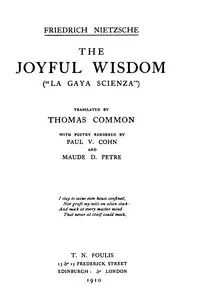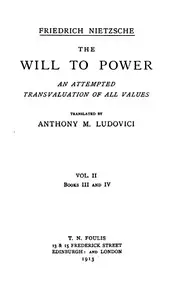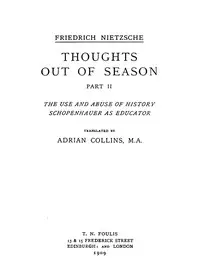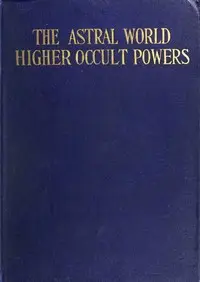"The Joyful Wisdom" ("La Gaya Scienza") by Friedrich Wilhelm Nietzsche is a philosophical book that considers what it means to be alive, what people are really like, and how joy and laughter fit into the picture. Acting as a transition from his previous writings to "Thus Spoke Zarathustra," it provides a look at his developing ideas about right and wrong, what we know, and the heart of life. The book begins by looking at how people always try to survive and find meaning, claiming that even bad parts of human nature can help keep us going as a group. It questions common morals and values, saying they frequently hide the wild and instinctive sides of being human. It also brings up the idea of "joyful wisdom," suggesting that a special type of laughter that comes from understanding the ridiculous parts of life is needed for people and communities to grow. In the end, the book suggests that Nietzsche thought people could create their own understanding of life, even though it is filled with contradictions and difficulties.
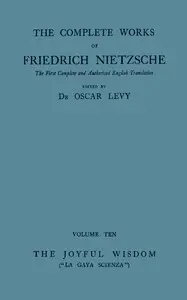
The Joyful Wisdom ("La Gaya Scienza")
By Friedrich Wilhelm Nietzsche
Explore the depths of human existence, morality, and the transformative power of laughter in a world filled with contradictions.
Summary
About the AuthorFriedrich Wilhelm Nietzsche was a German classical scholar, philosopher, and critic of culture, who became one of the most influential of all modern thinkers. He began his career as a classical philologist before turning to philosophy. He became the youngest person to hold the Chair of Classical Philology at the University of Basel in Switzerland in 1869, at the age of 24, but resigned in 1879 due to health problems that plagued him most of his life; he completed much of his core writing in the following decade. In 1889, at age 44, he suffered a collapse and afterward a complete loss of his mental faculties, with paralysis and probably vascular dementia. He lived his remaining years in the care of his mother until her death in 1897, and then with his sister Elisabeth Förster-Nietzsche. Nietzsche died in 1900, after experiencing pneumonia and multiple strokes.
Friedrich Wilhelm Nietzsche was a German classical scholar, philosopher, and critic of culture, who became one of the most influential of all modern thinkers. He began his career as a classical philologist before turning to philosophy. He became the youngest person to hold the Chair of Classical Philology at the University of Basel in Switzerland in 1869, at the age of 24, but resigned in 1879 due to health problems that plagued him most of his life; he completed much of his core writing in the following decade. In 1889, at age 44, he suffered a collapse and afterward a complete loss of his mental faculties, with paralysis and probably vascular dementia. He lived his remaining years in the care of his mother until her death in 1897, and then with his sister Elisabeth Förster-Nietzsche. Nietzsche died in 1900, after experiencing pneumonia and multiple strokes.


